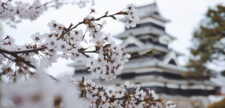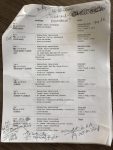On the Road in Uzbekistan – a travel blog
The sixth leg of my around-the-world tour is Uzbekistan.
Note: the fifth leg was Azerbaijan. See my blogs: Azerbaijan Architecture and Complex Azerbaijan Politics.
Why Uzbekistan? I can’t really say. I think the names Tashkent and Samarkand drew me. Also, the complications of ticketing an around the world trip made going other places in the region more difficult while Uzbekistan was doable. Plus I could get tours here.
It’s the pink country, and it’s completely surrounded by other Stans. The capital, Tashkent, is very near the border with Kazakhstan.

Samarkand is more in the middle and was an important stop on the Silk Road.

The people. The Uzbek as a people are fascinating. The population is richly multiethnic. My guide, Kamal, has an Asian look, including the shape of his eyes, but then he has what Asians call two eyelids and what Westerners call the epicanthic fold. So, he looks … like himself. He told me he has a brother who has very dark skin, now lives in Miami, and can pass himself off as being from the Caribbean.
 Here is Kamal in the courtyard of a famous ceramicist we visited.
Here is Kamal in the courtyard of a famous ceramicist we visited.
I saw Uzbeks with light skin and light hair. So, an interesting gene pool.
The clothing. Equally interesting is the clothing, which remains traditional.
 Here are dresses on sale at the main market in Tashkent. Kamal told me these kinds of dresses are worn in the first 40 days after a woman gets married. If she’s rich, she’ll wear a different dress every day. Even the poorest woman will have 10 changes of clothing.
Here are dresses on sale at the main market in Tashkent. Kamal told me these kinds of dresses are worn in the first 40 days after a woman gets married. If she’s rich, she’ll wear a different dress every day. Even the poorest woman will have 10 changes of clothing.
I can report that for the six days I was in Uzbekistan there were a lot of women in the first 40 days of their marriage. Either that, or traditional dress is widespread.
Here is a typical example of a woman with a mid-calf dress, long pants, slippers, and lots of sparkle. They really go for the bedazzling.
I think it’s rude to take pictures of regular people, so the presumed subject of this photo is the almond tree in the background. It’s at the tomb of Holy Daniel (of Biblical fame) in Samarkand, and it’s magical because it died then came alive again, maybe when a priest touched it.
Men’s clothing is much more subdued.
The men still wear their skullcaps. The designs indicate their tribe or area where they’re from.
History and architecture. You go to Uzbekistan for the history and the classical Central Asian architecture.
Here is the Shah-i-Zinda Memorial Complex of Islamic Architecture founded in XI – XI centuries, which was added to over the next few centuries.
The interior is a maze of memorials:

You can’t go to this part of the world without hearing about Temor the Great (1370-1405). Here is his tomb in Samarkand.
He was a great warrior and conquered an empire.
Then there’s the scientist-sultan Ulugh Beg (1394-1449). He’s the one who had Registon built, pictured above. The political situation in his day was dicey. Long story short: his eldest son had him beheaded.
Ulugh Beg was known, in particular, for his astronomical observations. Here’s part of his observatory in Samarkand:

Other notable examples of Central Asian architecture include the Barak-Khan Madrasah in Tashkent, which was built by Ulugh Beg’s grandson in the 16th century. Fortunately it was spared destruction in the late 19th-century earthquakes. Here’s the interior courtyard:
The museum of traditional arts in Tashkent is a beauty, inside:

and out:
When you’re in Tashkent, you can also see the world’s oldest Koran.

The climate. Uzbekistan is 70% desert, 21% mountains, and 9% arable land.
 There’s a reason most cars are white: it’s too hot in the summer in a car any color other than white. Here’s a completely random parking lot shot. Any lot or street corner in Uzbekistan will look the same: mostly white cars, vans and buses.
There’s a reason most cars are white: it’s too hot in the summer in a car any color other than white. Here’s a completely random parking lot shot. Any lot or street corner in Uzbekistan will look the same: mostly white cars, vans and buses.
Cars are also easier to keep clean in white because they don’t show the dust.
The language. The Uzbeks speak Uzbek, a Turkic language. Russian is a lingua franca.
Samarkand is a two-hour bullet train ride away from Tashkent. Kamal is from Tashkent. He spoke Russian with the Uzbeks in Samarkand, because he said his variety of Uzbek would be difficult for them to understand, and everyone already speaks Russian as a second language. His children are growing up speaking both Uzbek and Russian.
See also: All My Asia Blogs
Categorised in: Adventure, Central Asia
This post was written by Julie Tetel Andresen
You may also like these stories:
- google+
- comment











